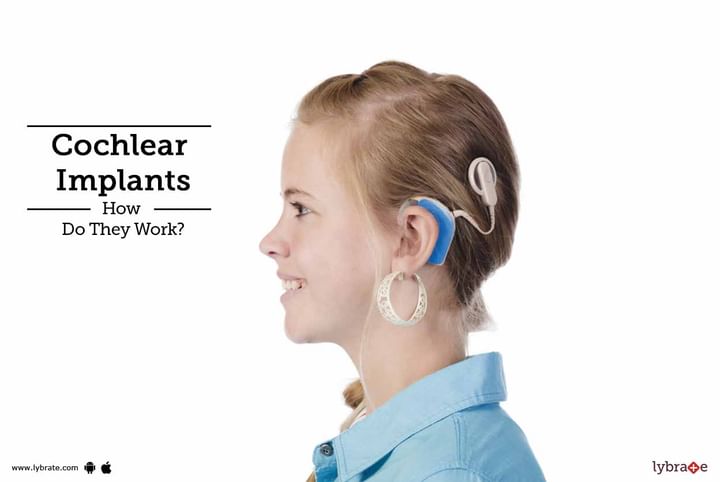Cochlear Implants - How Do They Work?
A cochlear implant is beneficial if you are deaf or have difficulties in hearing. Cochlear implants are not hearing aids which just raise the volume of the different sounds you hear; they are surgically implanted inside your head. The implant transmits impulses straight to the auditory nerves which send the signals to the brain.
Cochlear implants can help you with sounds such as telephones, alarms or doorbells ringing. You can even understand speech or listen to music again with the help of cochlear implants.
How Cochlear Implants Work?
Cochlear implants are for adults and children with sensorineural (hearing loss caused by damage to the inner ear) hearing loss.
The device consists of two parts:
-
The receiver-stimulator: this part is surgically implanted under the skin.
-
The speech processor: this part is placed externally, behind the ear.
The receiver-stimulator is placed first, and two weeks after the procedure, the speech-processor is installed. If there are sounds around you, the microphone on the speech processor will pick them up and transform them into electrical impulses. The receiver-stimulator receives these impulses through the electrodes inside them. The electrodes then send the electrical impulses to stimulate the auditory nerves, and ultimately, the sounds picked up will reach the brain.
Advantages Of Cochlear Implants-
Some advantages of cochlear implants include:
-
Being able to hear at normal volumes.
-
Understanding speech without the need to lip-read.
-
Listening to and talking over the phone get easier.
-
Being able to hear music better after the surgery.
-
Picking up loud, medium and soft sounds.
-
Modulating your own voice gets better, so others understand you easily.
Disadvantages/Risks Associated With Cochlear Implants-
The risks of cochlear implants are common surgical after-effects such as infection, bleeding and anaesthetic side-effects. Some other complications include:
-
Alteration in sense of taste due to nerve injury.
-
Paralysis or weakness on the face due to nerve damage.
-
Tinnitus (Ringing in the ear).
-
Fluid leakage around the brain.
-
Device can be faulty or get infected.
-
Meningitis (An infection in the brain).
People Who Can Get Cochlear Implant-
You are eligible to get a cochlear implant if you have:
-
Profound to severe hearing loss.
-
Problems with the hearing aid.
-
A strong wish to improve your hearing.
-
Even children with severe hearing loss in both the ears can get a cochlear implant.
In case you have a concern or query you can always consult an expert & get answers to your questions!



+1.svg)
